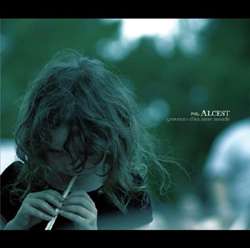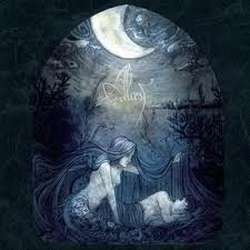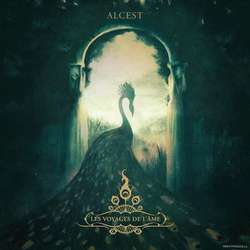Kodama (loosely translating to “tree spirit” in Japanese) is a record that follows Alcest’s path of spirituality in music, and while Shelter (2014) was a lovely, warm, summery album, in retrospect it may not have been one of the best outings for the French duo. Kodama strips back to the basics of Alcest’s sound and lifts the mind into new realms while doing so. It’s reminiscent of the early days and on a few occasions since Shelter frontman Neige has talked about the new music as something that harks back to the past in terms of style, but also moves the band very much in to the future. It’s affective and gorgeous, truly sorrowful (“Eclosion” is a masterpiece of sadness) and even angry at times (“Oiseaux de proie” speaks of primitive rage and agony), but at its heart is a yearning to find peace and knowledge and truth.
Influences come from Japanese culture – in the artwork, in the themes and even in the sounds at times – and it’s in Japan that Neige finds huge inspiration and comfort. The use of art to interpret otherworldly emotions and beings is something that Alcest have done (more or less) since the beginning, and in Japan the medium is used in much the same way. Naming the record Kodama is a loving touch and the colours and style of the artwork filter through the music found within.
“Kodama” begins this journey on uplifting guitar progressions that give way to Neige’s ethereal vocals – which, in a recent stream with NPR, he confirmed weren’t actually words and instead were vocalisations influenced by Dean Can Dance and The Cocteau Twins. It’s certainly an unusual approach but, fits so well with Alcest’s themes and aesthetic, that the sounds register as words and still build an otherworldly, magical picture that you could almost touch. There’s a warmth held inside and the shimmering guitars and weighty bass intertwine with sweet melodies that climb ever upwards towards a peak before cascading into silence and echoing to the melancholy of “Eclosion.”
Ushered in on breathless words, “Eclosion” soon bursts into fiery life when Neige switches to his trademark scream, a voice that once sounded so beautiful, is now twisted with rage and pain and it’s in this turnaround that Alcest find their niche. The juxtaposition of such anger against a current of sweetness that pulses underneath is a considerable metaphor for humanity and for Alcest and their constant search for a dreamworld always out of reach; it’s a necessary scream of frustration. A true sadness lies within its blackened walls and carries into the bittersweet harmonies of “Untouched,” a song that utilises beauty to symbolise pain, rather than aggression.
“Oiseaux de proie” signals the end of Kodama and a subtle darkness descends as the track progresses towards its conclusion. The rhythm is infectious and Winterhalter’s (Jean Deflandre) drums drive the whole piece forward (it’s worth noting that the drums on this record sound incredible – they’re rich, loud and punishing at times) with tactile anger. Screams are present again, to push the song into painful domains and the pace ramps up in the final moments to signal a rush into the extreme unknown. Neige has mentioned that it is the angriest song on the record, and while its coloured with pretty moments, there’s a secret gloom that bubbles below the surface, yearning to be set free.
It’s this duality that drives Alcest and in searching for answers they create music that speaks to many – they’re not quite black metal, and not wholly shoegaze, but they are entirely human and it’s in this that people have found their home. "Onyx" closes out Kodama on bittersweet, instrumental tones that offer a slight glimpse at the sunlight that we all seek to find.







